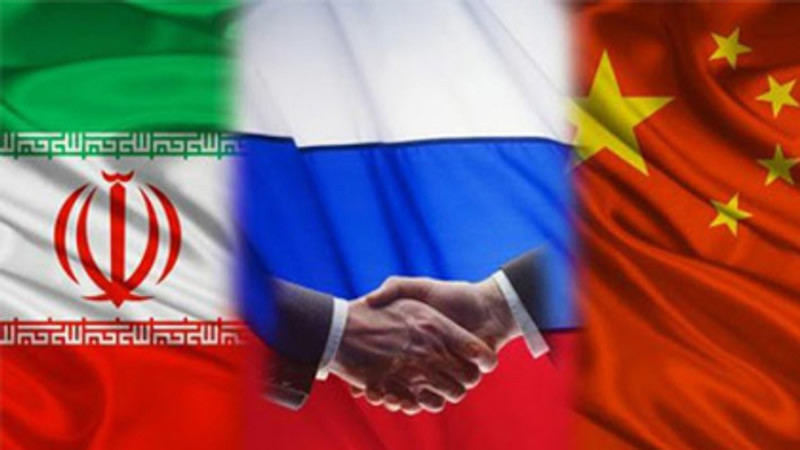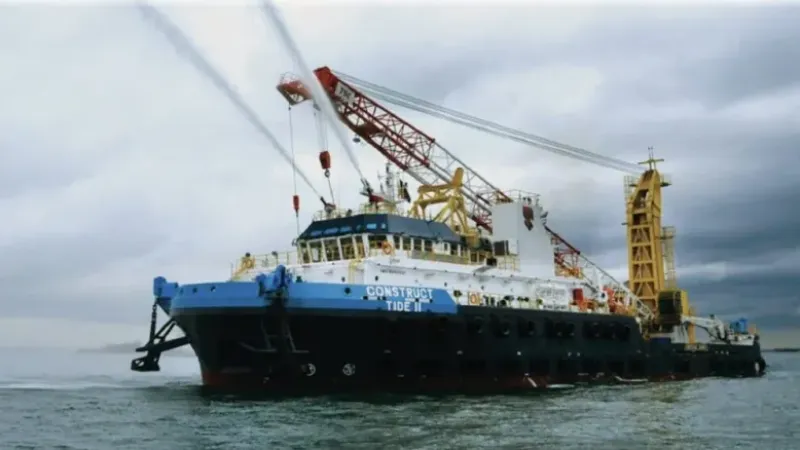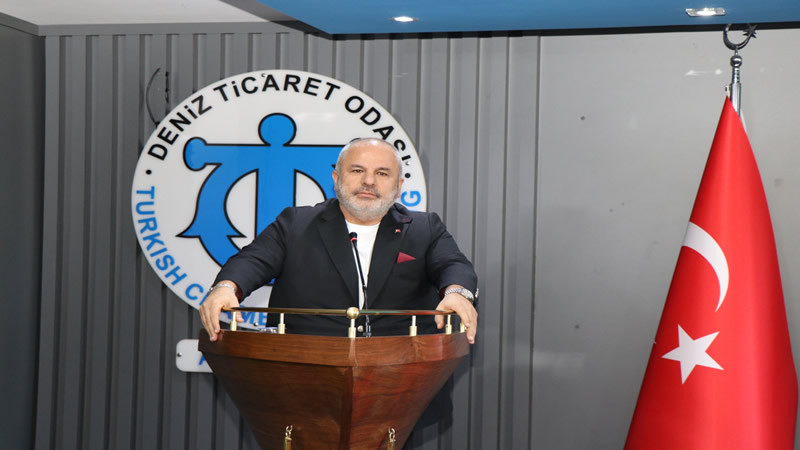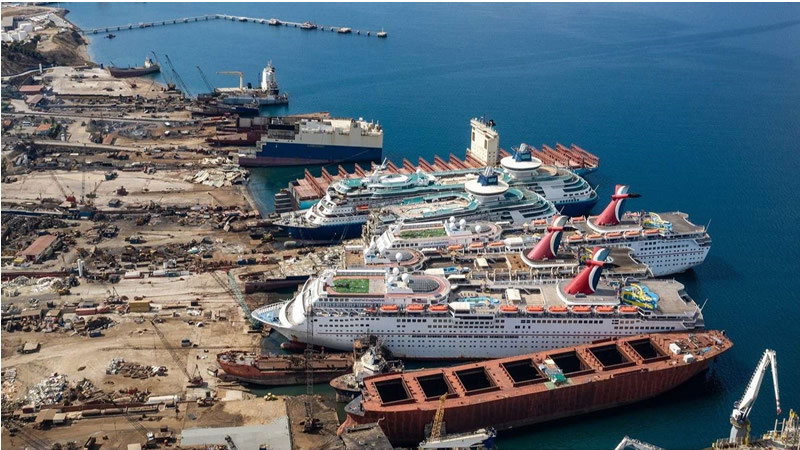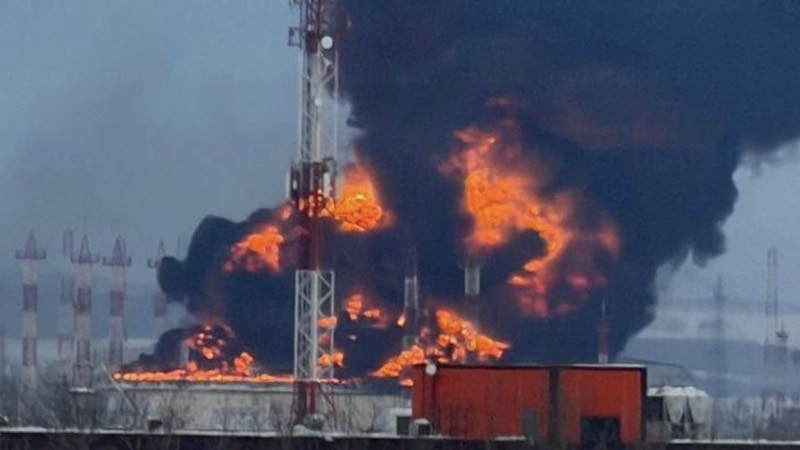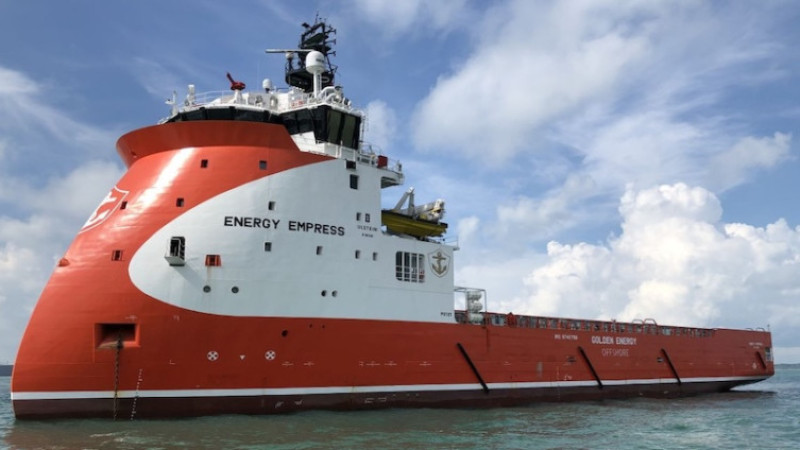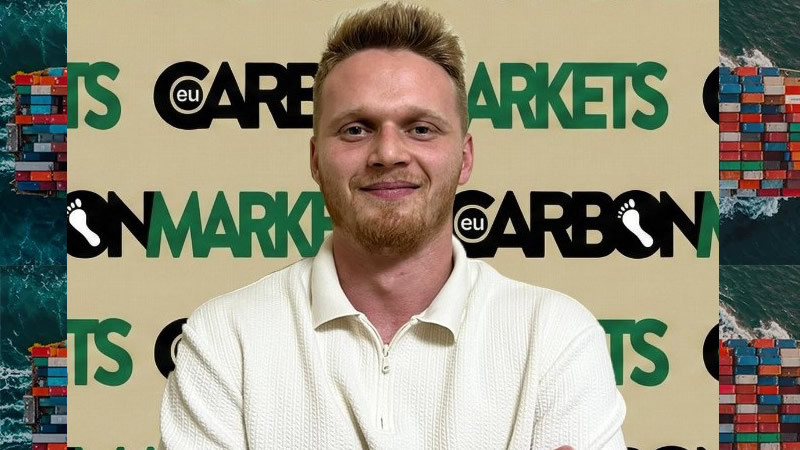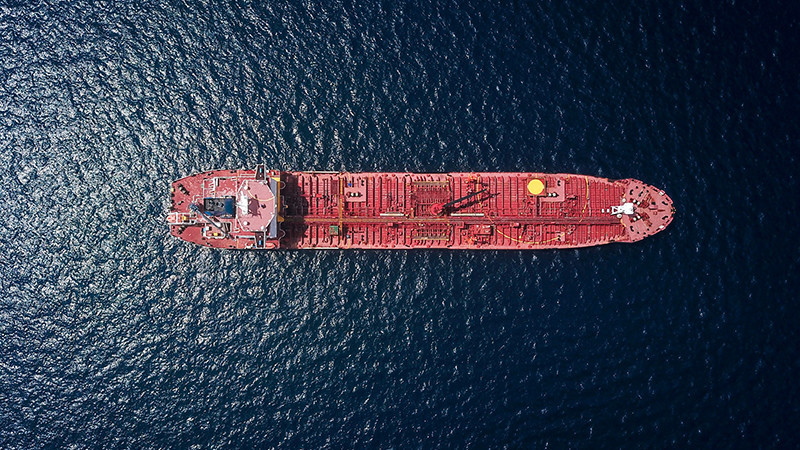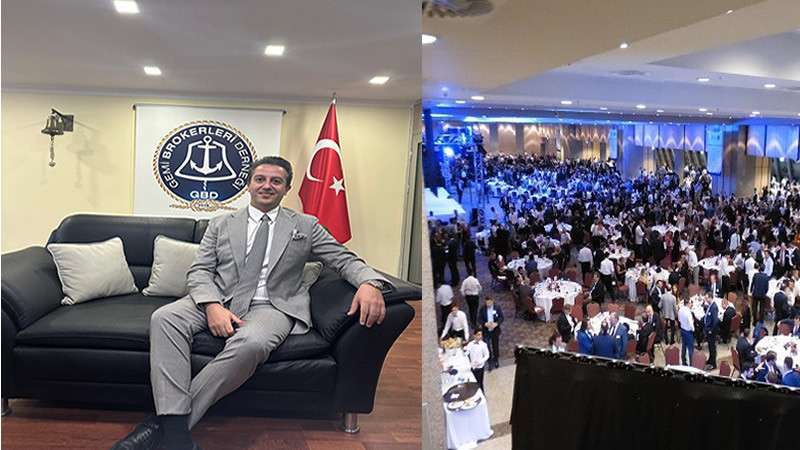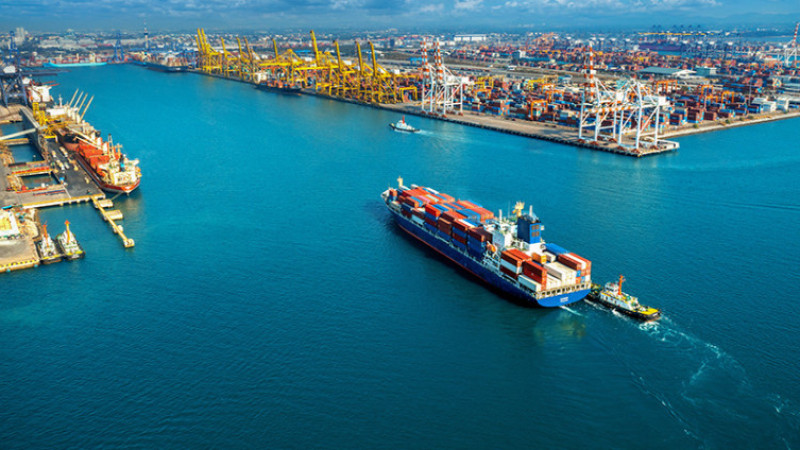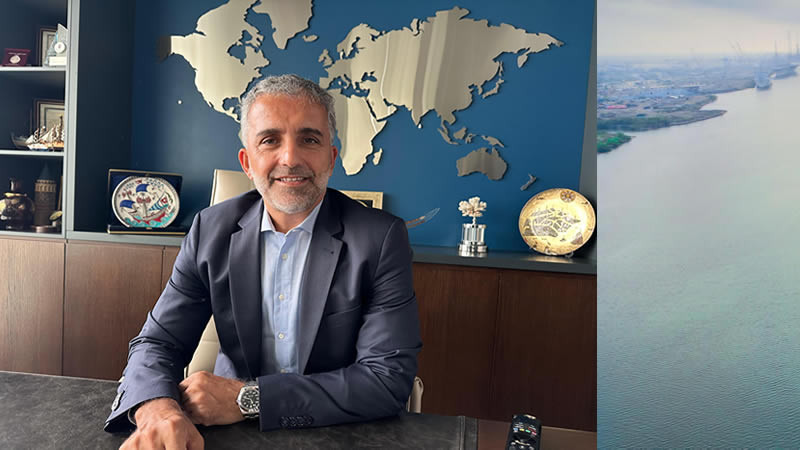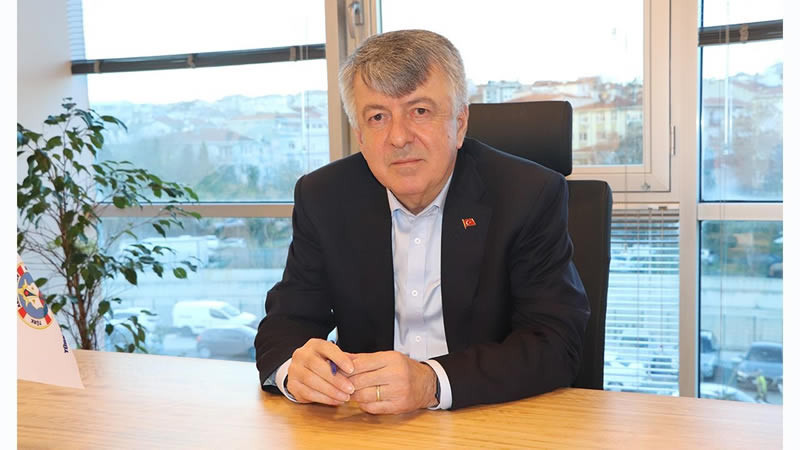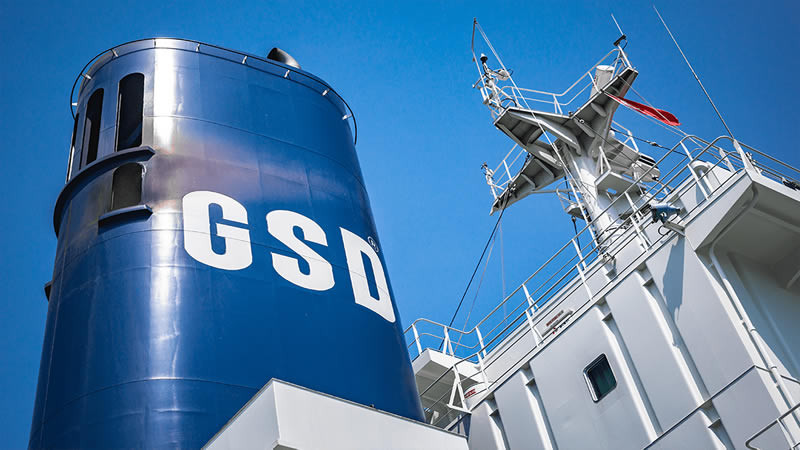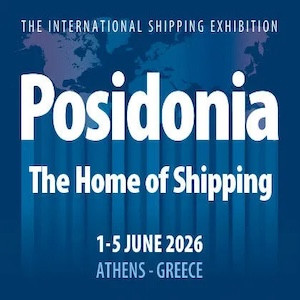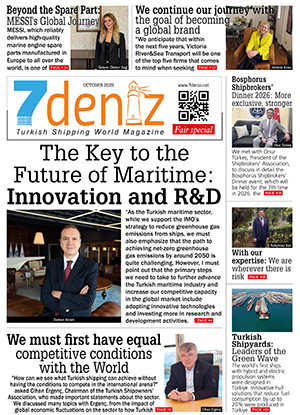Beşiktaş-Düzgit synergy created Park Shipyard
Recep Düzgit is one of the important names of our industry with his knowledge, experience and expertise.
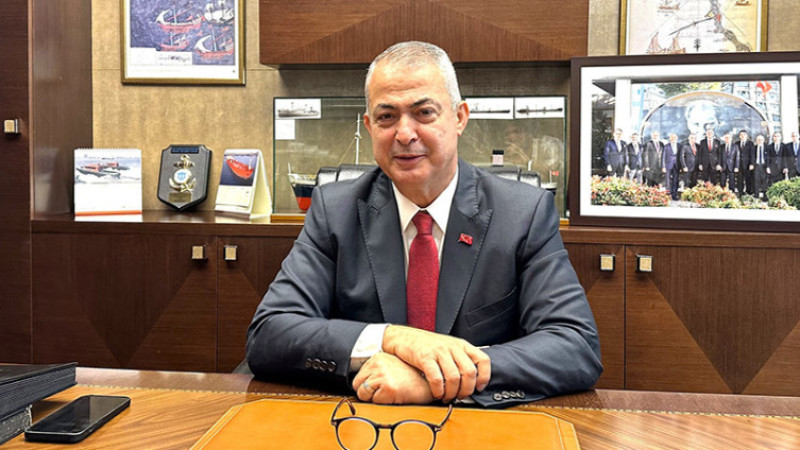
Recep Düzgit is one of the important names of our industry with his knowledge, experience and expertise. We discussed the gains that Park Shipyard, which was established with the partnership of Beşiktaş Shipyard and Düzgit Group, will create for our sector, and we also discussed many issues related to the sector with Düzgit. Düzgit, who is the Chairman of the TOBB Maritime Assembly and Vice Chairman of the Board of Directors of IMEAK DTO, as well as the Chairman of the Association of Steamship Owners and Agents, shared his views on many issues ranging from Turkey's current economic situation to how the coaster project should evolve, from the gains of the shipbuilding and shipyard sectors to our country to the communiqué on ship agency, whose tariff has been redefined.
Park Shipyard, which has recently started operating in Yalova shipyards region with a 50-50 partnership, has started to serve the sector in the field of repair and maintenance. Providing information about the establishment of the shipyard and its service areas, Recep Düzgit, Chairman of the Board of Directors of Düzgit Group, said: "Both parties brought together the instruments they had and a shipyard that mainly operates on ship repair emerged. Our shipyard has a 226-meter-long and 16-meter-wide pier. With the Panamax pool located right in front of the pier, it has the capacity to provide repair services for 5 ships at the same time. This is an important advantage. I believe that Beşiktaş will reflect its undisputed experience and market leadership in this field here in the same way, with the same efficiency, and hopefully we will make significant contributions to our sector." 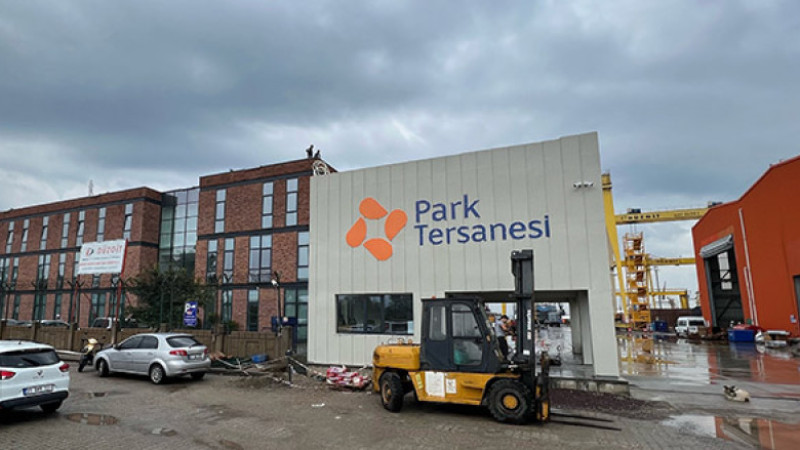
Commenting on their partnership with Beşiktaş Shipyard, Düzgit said, "Our acquaintance with Yavuz Kalkavan goes back a long time. He is also good friends with my brother Metin Düzgit. Moreover, Yardımcı Family and Nazım Kalkavan are also partners in this business. We have a history with them that goes back to the friendship of our fathers. Park Shipyard is an investment that brings the needs of both sides together at a common point. They had a pool and we had a shipyard. After the 2008 crisis, shipbuilding was not very attractive. Repair has different dynamics. These dynamics are combined in this project. The groups also know each other well. Thus, it was a cooperation that created a good synergy."
Equity in coaster renewal is necessary
Düzgit shared his views with us about the developments in the sector and said the following about the Koster renewal project: "I look at this issue as follows: A man has a 30-year-old ship. It is old and needs to be replaced. No one has to come and put money in his pocket for him to renew his ship. Why should they if they don't have their own resources? I was told this by one of our elders from the sector; shipownership is not a labor-intensive business, it is a capital-intensive business. For example, shipbuilding is a labor-intensive business. 1000 people work. Shipownership is not like that. You buy a ship with enough money to invest in a shipyard, but it works with 20 people. There needs to be equity in the renewal of a coaster. If you take a loan for 90% of the cost of the ship and say I will build a ship, when this value drops by 30%, everything goes downhill. The Ministry of Transportation and Infrastructure is working. Thanks to them, they have published legislation twice, but I have not heard of anyone using that resource except the General Directorate of Coastal Safety. They have a very important income item because 30% of the pilotage and towage revenues are paid to the ministry every month as State Contribution Share. Half of this money goes to the treasury and half to the revolving fund of the ministry. I think it is essential that the money coming from maritime should return to maritime. If those who take this decision here make these arrangements in consultation with us, our Chamber of Shipping, then I believe that we will create a solid model that can be implemented and will contribute to our country. We also have a university that can work with us. We need to look at which model will not put this investment at risk, and which model will support the renewal of the fleet. The shipowner also needs to put his hand under the stone. If they do not have a certain amount of equity, this will not work. According to a study, when a ship that cannot be built in Turkey starts to be built in Turkey, it has an additional contribution of 18%-20% to the economy. The employment of the workers working on that ship, taxes, local products purchased from the market, and other expenses all contribute to the economy. When the public supports this to a certain extent, it gets more than enough return. I believe that the Ministry will do a good job by putting the contribution share it collects from us into the work. While doing this work, please invite our Chamber. I am sure that we will bring this project somewhere if we are involved in it efficiently." 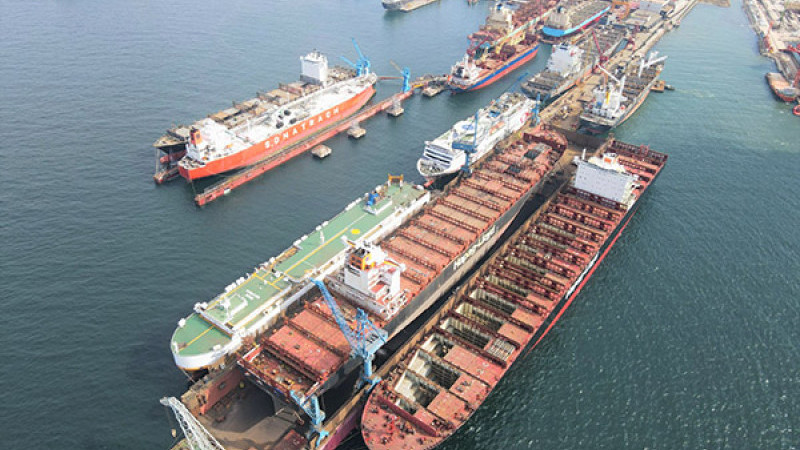
Our shipbuilding sector is very active
By 2030, environmental investments will increase more due to IMO regulations, Düzgit said, "This work should not be limited to coasters. The funds allocated for environmentally friendly ships and ports should also be reconsidered. The infrastructures for that transformation in every tonnage have not yet been formed. Issues such as battery technology and alternative fuel need to be resolved. These will develop anyway. It is important that we are not left out of this change. If we do the necessary work, we will get results. Our shipbuilding sector is very active in these issues, and as a result of our Presidency of Defense Industry believing in the Turkish private sector, especially in the construction of naval platforms, and as a result of our Presidency of Defense Industry believing in us and having us successfully carry out very large and serious projects, we have now become a country that exports defense industry in naval platforms not only to our country but also to many countries of the world. We cannot be too proud of this... I believe that this position will develop much more." 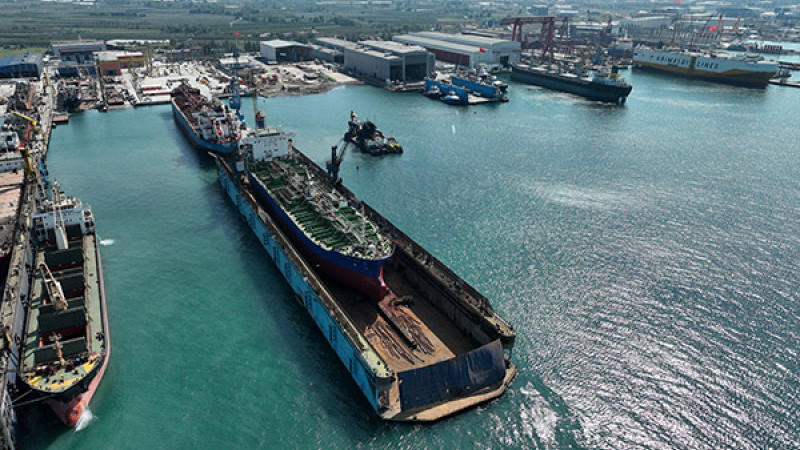
The ship agency tariff has a logical and fair formula
Düzgit also shared his views on ship agency fees, First of all, let me share the following observation, approximately 92% of the ships coming and going to the ports of our country are foreign flagged. Our elders, who made the ship agency tariff in Turkey at the time, went over a logical and fair formula. They said; let's take into account both a certain tonnage (net tons) of the ship and the tonnage of the loaded or discharged cargo. For example, the ship may have 10,000 net tons (approximately 25,000 dwt), but it may only have 3,000 tons of cargo on board because the ship has discharged its main cargo in Greece and will discharge the last remaining cargo in Derince. For this reason, such a formula was found in time. Some of our friends take the word "surveillance" in that surveillance fee as a basis. We used to have a coaster too. A man would be sent to supervise the discharge of the cargo at Haydarpaşa Port. Those who claim this are saying that there is no surveillance work going on, so what are they being paid for? Or there are private inspection companies that can supervise the cargo. They say you are not an inspection company either. But actually the issue has nothing to do with this. The definition of the surveillance fee is very detailed in the communiqué. The agency is even responsible for the lack and/or excess of cargo. The shipowner should look at what he pays in total. The new fee tariff communiqué was published on September 19, 2023. The last time this tariff was published was 15.5 years ago on March 10, 2008. At that time, there was no difference with the previous one published in 2004, except that the Dollar tariff was announced in Euros with the same figures. The parity was 1.53. When we look at the parity today, it corresponds to 1.06 dollars. This means that the parity-induced advantages of the one published in 2008 have been wiped out. Prior to 2008, the changes were issued in 2004, 1994 and 1987. The figures in the tariff had remained almost unchanged for 36 years. In other words, business had been done with the same tariff since 1987. The purchasing power of 1,000 dollars in 1987 is equivalent to 2650 dollars today. For example, the hotel in London where I stayed for 120 pounds in 1987 is now 1,000 pounds a night. The engine of our agency boats that we bought for 8.000 pounds is 30.000 pounds today. The salaries of experienced agency staff working in ship agencies have increased by more than 100% in foreign currency in the last two years, yet it has become much more difficult to retain good staff. We cannot ignore the facts. We need to compare the total fee paid to a ship agent with the agency fees we pay in the Black Sea, Mediterranean and European ports, and when we look at it that way, Turkey is still more favorable than most of them. We have actually made very important changes in this communiqué. With the communiqué issued in 2004, we had a protocol between the Shipowners' Association, the Shipowners' Cooperative, and the Association of Steamship Owners and Agents, and there was a 50% discount for Turkish flagged ships. Since it was a protocol outside the communiqué, there were agencies that did not apply it. Especially recently, they were not implementing it at all. They were saying that the tenant appointed us. In that case, we said that charterers do not rule us, and taking courage from the Port Services tariff of the Ministry of Transport, we introduced a 50% discount for Turkish Flag ships. Considering that the discounts were not applied to Turkish Flag ships within the scope of the protocol I mentioned in recent years, the tariff of Turkish Flag ships did not increase with the newly published tariff, but decreased. Because there has been no increase in surveillance fees. There is only an increase in agency fees. When you take the total, for example, a ship that used to be 3.000 dollars according to its tonnage and cargo has now dropped to 2.000 dollars. For ships that stayed in ports and shipyards for a long time, there were tiers where the fees would increase, we reduced them in three separate items. We reduced the rate from 25% to 20% and increased the number of days. Although this tariff is the minimum tariff, especially the tenant agencies or the agency owners who own the port were applying 2-3 times more than the minimum, now we have put a brake on this. Therefore, this tariff has become both the minimum and maximum tariff. There are many articles such as these in this tariff that protect the shipowner. The surveillance fee had a lower limit and no upper limit, now we have introduced an upper limit of 10 thousand Euros. There were demands from container carriers, they were saying that we are making big international contracts and we are having difficulties in complying with the tariff. We have met their demands to a large extent. We have granted a discount similar to passenger ships to companies that prove that they are on the line." As a result, Turkish flagged ships will pay lower fees than they have paid so far, and foreign flagged ships will increase foreign currency inflow, which our country needs the most these days. 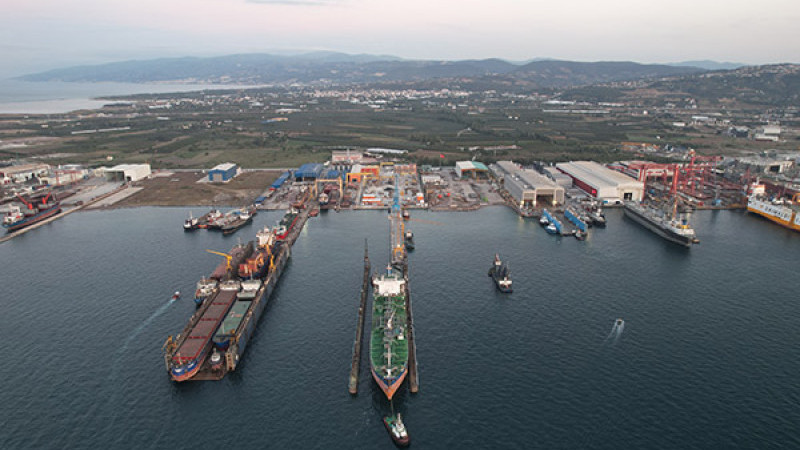
Companies that will invest in ships should use equity
Düzgit said that when we look at the general economic situation in Turkey, we should be grateful for the situation of Turkish maritime sector, adding, "Many seafarers earn money in foreign currency or in exchange for foreign currency. Some of them do international business completely, some half and half. Therefore, they are not only dependent on the economic situation in our country. Although the freight rates go up and down, they are not as they were when they were at their lowest, but it is obvious that the expenses have also increased a lot. We are experiencing uncontrolled cost of living in the country that we have never experienced before. Some of them are very unfair. For example, there are very high prices in restaurants. As if this is not enough, new methods are being developed to get more money from customers. Turkish people need to think again here. Greece, which is right next to us, is not doing this. For 10 years I have been going to Greece and while the prices are almost always the same, our prices are always going up in Euro terms. In the long run, we will miss tourists and we are already missing them. Inspections cannot be within logic. We need to be conscious as a society, not only through inspections. I say that we should be grateful for the situation we are in today in the maritime sector in general terms in Turkey. Today, companies that will invest in ships should use equity rather than loans."


